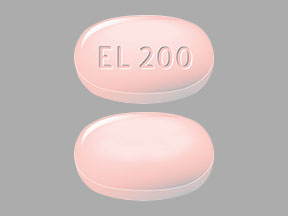
Orilissa Coupons & Savings Card – Discount Prices from $1221.05
My prescription
Edit
200MG, Orilissa (56 Tablets)
Select pharmacy

CVS
$1221.05
COUPON PRICE
Walgreens
$1235.98
COUPON PRICE
Albertsons
$1242.15
COUPON PRICE
Walmart
$1328.06
COUPON PRICEOrilissa savings card
Show this card to your pharmacist
CVS
$1221.05
BIN
ID
PCN
GRP
019876
LHF5F440AE
CHIPPO
LHX
Powered by
Related gonadotropin releasing hormone antagonists prescriptions
More prescriptions for endometriosis
Related gonadotropin releasing hormone antagonists prescriptions
More prescriptions for endometriosis
Price history for Orilissa
56 Tablets, 200MG
Average retail price for Orilissa
Average SaveHealth price for Orilissa
Our price history data is based on aggregated prescription data collected from participating pharmacies in America. Our prescription data updates daily to reflect the latest price changes. If you notice a missing data point, it means there wasn't sufficient data available to generate a monetary value for that date.
*Retail prices are based on pharmacy claims data, and may not be accurate when we don't have enough claims.
Orilissa dosage forms
Dosage Quantity Price from Per unit 150MG 28 Tablets $1241.13 $44.33 200MG 56 Tablets $1221.05 $21.80
| Dosage | Quantity | Price from | Per unit |
|---|---|---|---|
| 150MG | 28 Tablets | $1241.13 | $44.33 |
| 200MG | 56 Tablets | $1221.05 | $21.80 |
What does orilissa do to endometriosis?
Orilissa is a medication that helps manage the symptoms of endometriosis by reducing the levels of estrogen in the body. This reduction in estrogen can alleviate pain and other symptoms associated with endometriosis.
Is orilissa the same as lupron?
Orilissa and Lupron are not the same medication, although both are used to manage symptoms associated with endometriosis. Orilissa (elagolix) is an oral medication that works as a gonadotropin-releasing hormone (GnRH) antagonist, while Lupron (leuprolide acetate) is an injectable medication that acts as a GnRH agonist. They have different mechanisms of action and administration methods.
What are the cons of Orilissa?
Orilissa, a medication used to manage pain associated with endometriosis, has several potential drawbacks. Common side effects include hot flashes, headaches, nausea, and mood changes. It may also lead to decreased bone mineral density with long-term use, which could increase the risk of osteoporosis. Additionally, Orilissa can cause liver enzyme elevations, so liver function should be monitored. It is not recommended for use in individuals with severe liver impairment or during pregnancy, as it may harm the fetus. As with any medication, it is important to discuss potential risks and benefits with a healthcare provider.
Is Orilissa like birth control?
Orilissa is not like birth control. While both Orilissa and birth control pills can be used to manage symptoms related to menstrual cycles, they work differently. Orilissa is specifically used to manage moderate to severe pain associated with endometriosis by reducing estrogen levels, whereas birth control pills primarily prevent pregnancy and can also help regulate menstrual cycles and reduce menstrual pain.
Who should not take Orilissa?
Orilissa should not be taken by individuals who are pregnant, as it may harm the unborn baby. It is also contraindicated in those with severe liver impairment. Additionally, individuals with a history of osteoporosis or those who are at increased risk for bone loss should avoid using Orilissa, as it can decrease bone mineral density. It is important for patients to discuss their full medical history with their healthcare provider before starting Orilissa to ensure it is safe for them.
